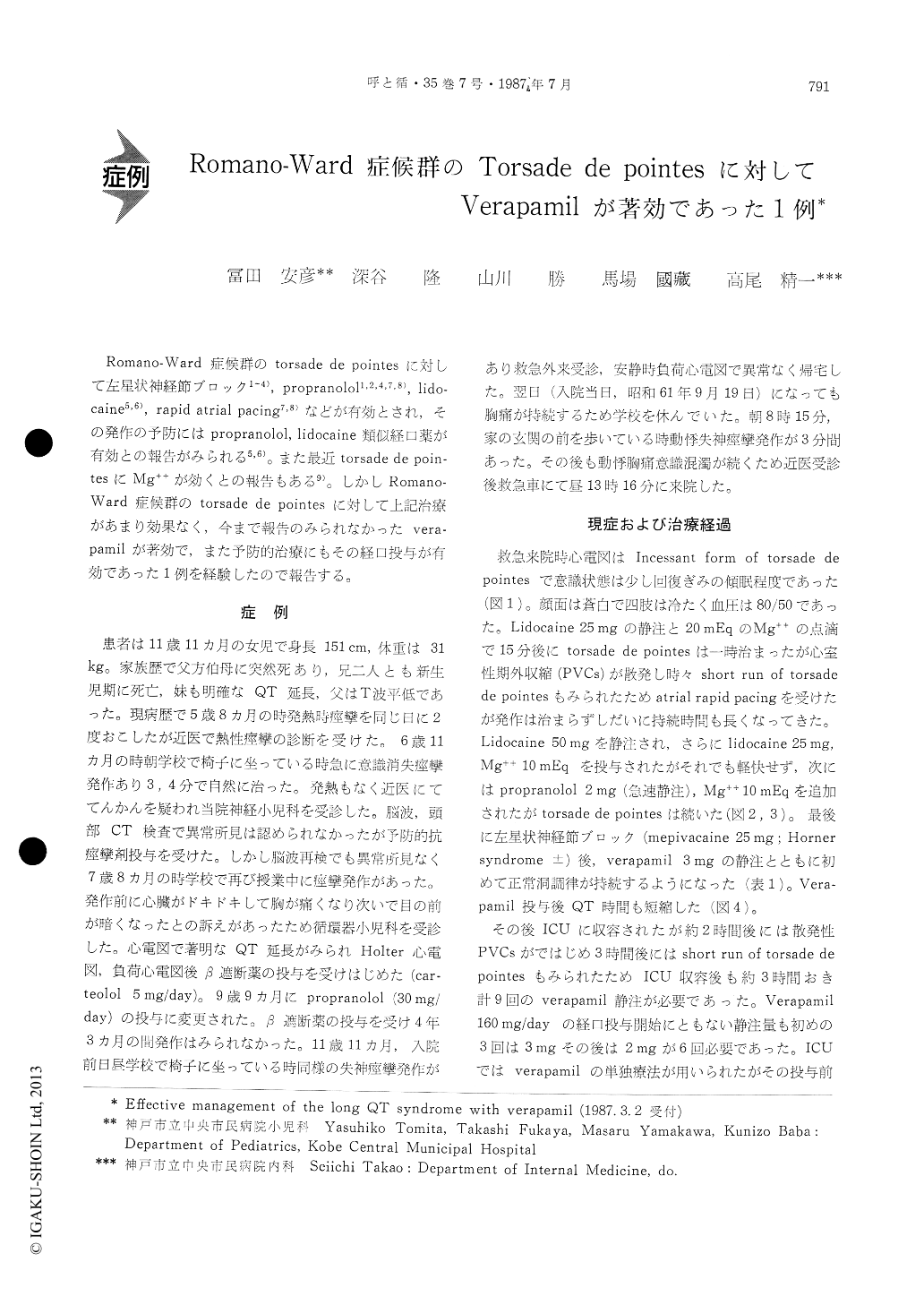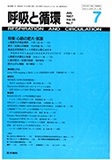Japanese
English
- 有料閲覧
- Abstract 文献概要
- 1ページ目 Look Inside
Romano-Ward症候群のtorsade de pointesに対して左星状神経節ブロック1〜4),propranolol1,2,4,7,8),lido—caine5,6),rapid atrial pacing7,8)などが有効とされ,その発作の予防にはpropranolol,1idocaine類似経口薬が有効との報告がみられる5,6)。また最近torsade de poin—tesにMg++が効くとの報告もある9)。しかしRomano—Ward症候群のtorsade de pointesに対して上記治療があまり効果なく,今まで報告のみられなかったvera—pamilが著効で,また予防的治療にもその経口投与が有効であった1例を経験したので報告する。
An 11-year-old girl with congenital long QT syn-drome (Romano-Ward syndrome) was successfully treated with verapamil. She has a family history of sudden death (paternal aunt) and QT prolongation (sister). She had her first syncopal attack and con-vulsion at age of 6. She was controlled by propra-nolol (1 mg/kg) with initially good result followed by a recurrence of syncopal attacks after 4 years. She came to our hospital after fourth syncopal attack and convulsion with sustained chest pain and disturbance of consciousness persisting about 5 hours. She was in shock state with incessant form of torsade de pointes. Lidocaine and magnesium sulfate did pro-duce a transient improvement while additional large doses seemed to increase number of episodes. Atrial overdrive pacing and propranolol (0. 07 mg/kg ; bolus injection) also failed to control until verapamil (0. 1 mg/kg) dramatically produced sustained normal sinus rhythm after left stellate ganglion block. Following 9 attacks of short run of VT in every 3 hours were also eliminated perfectly with verapamil alone show-ing shortened QT interval. Chronic oral verapamil therapy was cautiously undertaken and she is now in stable state during 6 month follow-up period. We concluded that verapamil might be the safest and most effective drug in acute and chronic control of Romano-Ward syndrome.

Copyright © 1987, Igaku-Shoin Ltd. All rights reserved.


